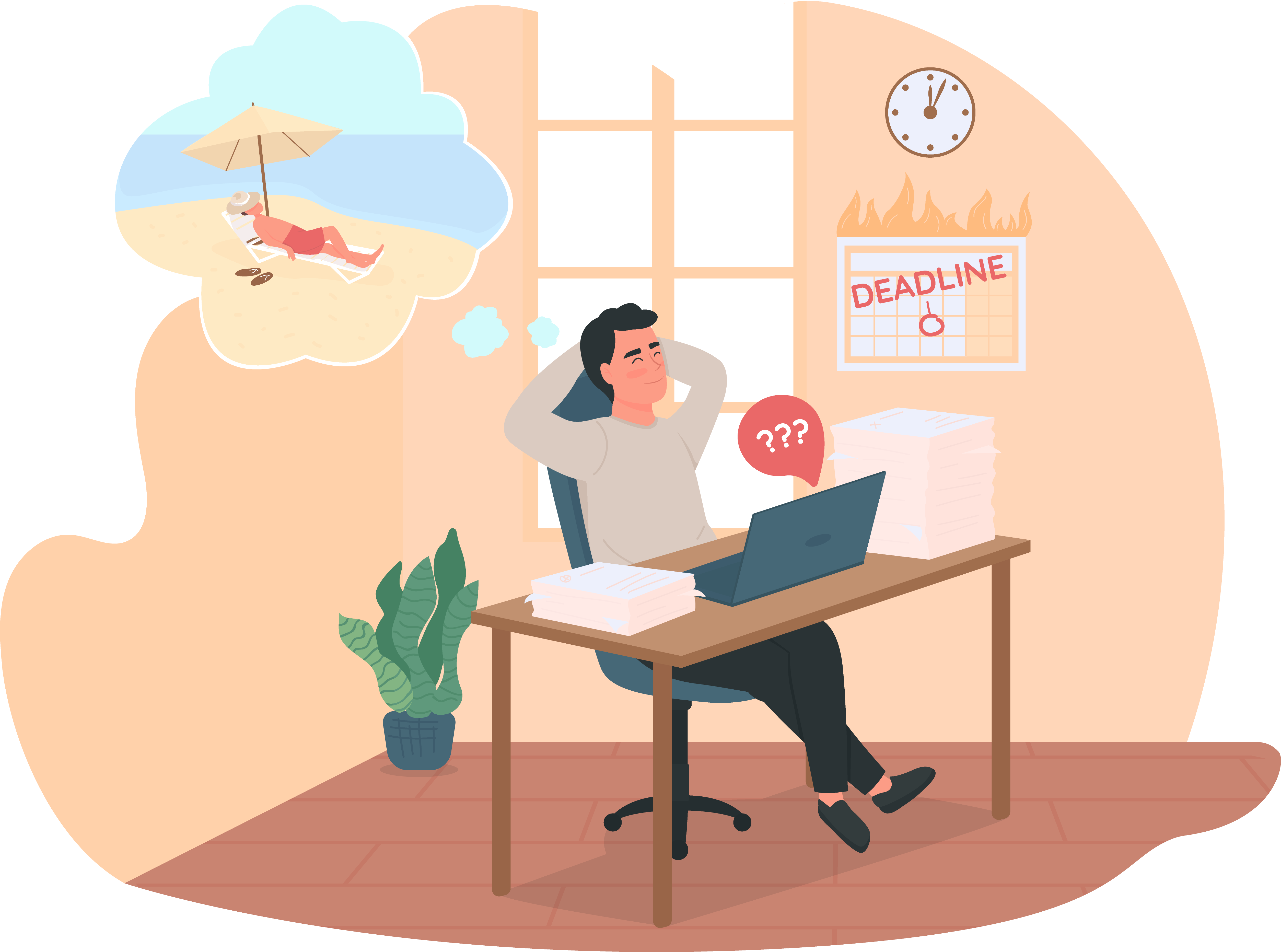

Daydreaming on the Job
Procrastination: Widespread Among Us
Procrastination is arguably the most common form of self-sabotage. And not just among “losers”. Some of the most accomplished people of all time delay(ed) their goals for no good reason. Author Truman Capote, architect Frank Lloyd Wright, and artist/inventor Leonardo da Vinci rank high among them.
Recent studies suggest that among adults, 15-20% of adults chronically procrastinate and 25% consider procrastination to be one of their defining personality traits. Among college students, procrastination is even more widespread: 80-95% procrastinate to some degree, around 70% regard themselves as procrastinators, and about 50% say that their procrastination is consistent and problematic.
Does knowing that comfort you? Does it make you feel less bad about yourself? I have to admit that it did me. Whether it should is not the point here. I admit I have been and still am, to some degree, a procrastinator. And a self-saboteur of many stripes. I have also spent much of the last 10 years helping clients, researching, writing and speaking about self-sabotage and procrastination. So I know procrastination and other forms of self-sabotage only too well.
What I think is really important and needs to be emphasized is that far too many of our goals and dreams go unrealized because WE SCREW OURSELVES OVER. Crazy isn’t it? WE UNDERMINE OUR OWN SUCCESS.
Think about it. Procrastination keeps you from learning, creating, discovering, having, experiencing, enjoying, and contributing to the world so much of what you are capable of. Imagine what you could accomplish if you knew how to overcome it.
The problem is not knowing how to stop yourself from procrastinating. And to do that, you must first:
-
- Become aware of all the ways you procrastinate – You can’t stop procrastinating if you don’t know what forms of behavior your procrastination takes.
- Figure out why you procrastinate – Without identifying the reasons why you procrastinate on your goals, or, to put it another way, what the pay-off is (what it gets you), you won’t be able to find another way to get that pay-off without self-sabotage.
- Become conscious of what triggers it – If you don’t know what activates your procrastination, you can’t devise strategies to avert it.
In the next four posts, entitled “How Do I Procrastinate? Let Me Count the Ways,” ” Why Do I Procrastinate? Let Me Count the Whys – Part 1 and 2,” and “What Triggers My Procrastination? Let Me Count the Whens” we’ll take a look at these issues. In subsequent posts we’ll talk about overcoming procrastination.






